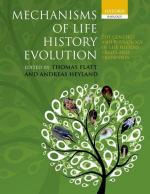|
This section contains 1,101 words (approx. 4 pages at 300 words per page) |

|
The history of physiology—the discipline concerned with the functioning of plants—can be organized around the discovery of several key processes.
One of the first physiological questions to be studied scientifically was how plants obtain food. Although we now know that plants manufacture carbohydrates from carbon dioxide and water via photosynthesis, the ancient Greeks reasoned that a plant's food must come from the soil. This idea persisted until the 1600s, when Jean Baptiste van Helmont performed an experiment in which he carefully weighed a pot of soil and planted a willow seedling in it. Over a period of five years he added nothing but water to the pot, and the willow grew into a tree weighing over one hundred pounds. When he cut down the tree he found that the soil weighed the same, less about two ounces, as when he began the...
|
This section contains 1,101 words (approx. 4 pages at 300 words per page) |

|


